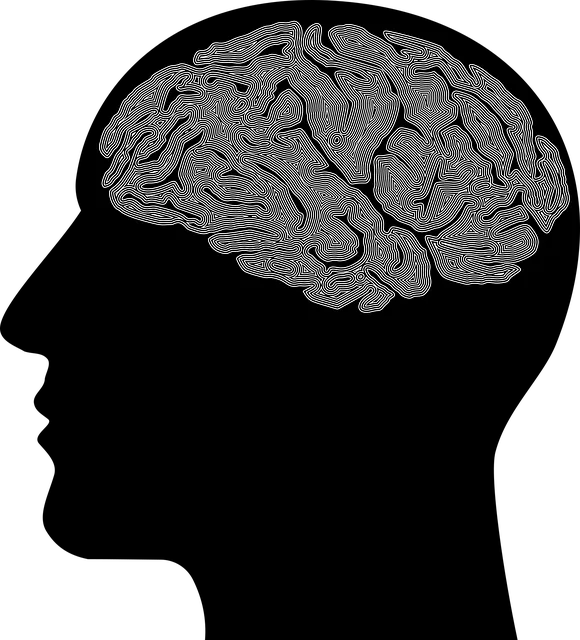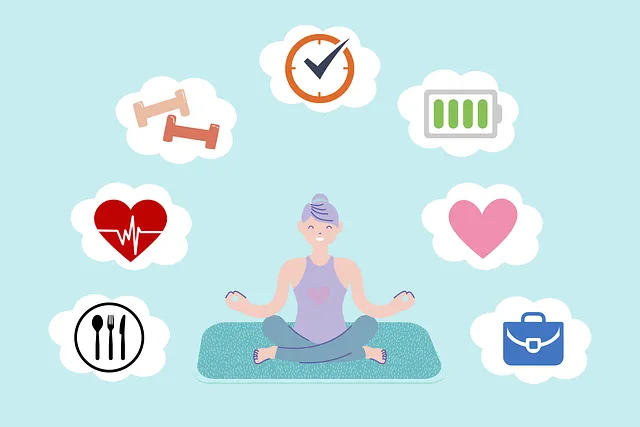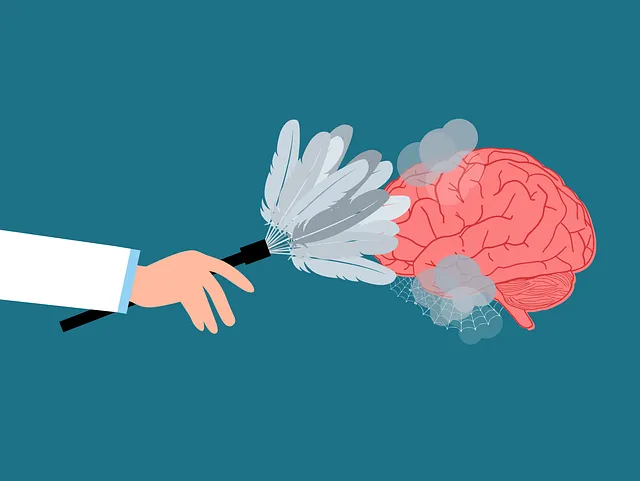The Kaiser Permanente Mental Health Access Center in Littleton, Colorado, offers a holistic approach to mental well-being, focusing on resilience development using the Resilience, Flexibility, and Mastery (RFM) framework. This individualized program identifies strengths and risks through assessment, empowering clients with tailored emotional regulation tools. By combining professional treatment, self-care practices, and open conversations about mental health, the center reduces stigma and enhances well-being. Culturally sensitive mindfulness and education programs, along with strong client-care provider relationships, contribute to continuous improvement measured through KPIs, ensuring personalized care that meets diverse needs.
Resilience is a vital asset in navigating life’s challenges. The RFM (Recovery, Flexibility, and Mastery) model offers a structured approach to building this strength. This article explores how the Kaiser Permanente Mental Health Access Center in Littleton has pioneered RFM implementation, providing a supportive hub for enhancing resilience. We delve into the assessment process, clinical integration of resilience exercises, and measurement strategies, highlighting the center’s success as a model for improving mental health care through RFM.
- Understanding RFM and its Role in Resilience Building
- The Kaiser Permanente Mental Health Access Center Littleton: A Hub for Support
- Identifying Risks and Strengths: The RFM Assessment Process
- Implementing Effective Resilience Exercises in a Clinical Setting
- Measuring Success and Continuous Improvement at the Access Center
Understanding RFM and its Role in Resilience Building

Resilience is a vital component of mental well-being, and its development has become a key focus in various healthcare settings, including the Kaiser Permanente Mental Health Access Center in Littleton. RFM (Resilience, Flexibility, and Mastery) is a powerful framework that plays a significant role in fostering resilience among individuals seeking mental health support. This approach recognizes that building resilience goes beyond traditional therapy; it involves equipping individuals with practical tools to navigate life’s challenges.
By integrating RFM principles, the Kaiser Permanente center offers clients a holistic path to healing. The process encourages participants to explore their unique experiences and develop personal strategies for emotional regulation and coping. This individualized approach, combined with cultural sensitivity in mental healthcare practice, ensures that compassion cultivation practices are tailored to meet the diverse needs of the community. Through these resilience-building exercises, individuals can enhance their ability to withstand and bounce back from adversity, fostering a deeper sense of well-being and improved emotional healing processes.
The Kaiser Permanente Mental Health Access Center Littleton: A Hub for Support

The Kaiser Permanente Mental Health Access Center Littleton stands as a beacon of support and resilience in the heart of Colorado. This center is dedicated to addressing mental health challenges with a comprehensive approach, emphasizing both professional treatment and self-care practices. It plays a pivotal role in the community by not only providing access to mental health services but also fostering an environment where individuals can learn and practice Mind Over Matter principles.
Here, visitors find a supportive space for open conversations about mental illness, aiming to reduce the stigma that often surrounds these discussions. Through various programs and initiatives, the center empowers individuals to take charge of their mental well-being. By integrating Self-Care Practices into their offerings, the Kaiser Permanente Mental Health Access Center Littleton ensures that residents have the tools and resources needed to navigate life’s challenges with resilience and adaptability.
Identifying Risks and Strengths: The RFM Assessment Process

The first step in fostering resilience lies in a comprehensive understanding of risks and strengths within an individual or community. The RFM (Risk, Strengths, and Motivation) assessment process, offered by Kaiser Permanente Mental Health Access Center Littleton, serves as a powerful tool for this purpose. It involves careful identification and categorization of various factors that contribute to emotional vulnerabilities and protective assets.
By employing the RFM framework, individuals and communities can gain valuable insights into their potential risks, such as trauma histories or chronic stressor exposure, alongside their inherent strengths, including coping mechanisms and personal resources. This dual-focused approach not only highlights areas requiring support but also celebrates existing resilience. Subsequently, tailored interventions can be designed to enhance communication strategies and emotional intelligence, thereby promoting emotional well-being through evidence-based techniques.
Implementing Effective Resilience Exercises in a Clinical Setting

Implementing effective resilience exercises in a clinical setting, such as those offered at the Kaiser Permanente mental health access center in Littleton, requires careful consideration and customization to meet diverse patient needs. These exercises should be tailored to address not only individual symptoms but also broader cultural sensitivities in mental healthcare practice. For instance, integrating mindfulness practices from various cultural traditions can enhance accessibility and effectiveness, fostering a sense of belonging and trust among patients from diverse backgrounds.
The design of mental health education programs plays a crucial role in building resilience. By incorporating evidence-based techniques that focus on anxiety relief and stress management, healthcare professionals at Kaiser Permanente Littleton can empower individuals to navigate life’s challenges more effectively. Regular sessions conducted by trained staff ensure consistent support, allowing patients to develop coping mechanisms tailored to their unique experiences. This holistic approach not only improves mental well-being but also strengthens the bond between care providers and clients within this specialized access center.
Measuring Success and Continuous Improvement at the Access Center

Measuring Success and Continuous Improvement at the Kaiser Permanente Mental Health Access Center in Littleton is a multifaceted process designed to enhance client outcomes and satisfaction. Key performance indicators (KPIs) are tracked regularly, focusing on aspects such as wait times, client feedback scores, and adherence rates for recommended resilience-building exercises. By collecting and analyzing these data points, the center can identify areas for improvement and tailor their services accordingly. For instance, if Stress Reduction Methods or Mindfulness Meditation sessions have high drop-off rates, staff can investigate barriers to participation and adjust their approach.
This data-driven approach encourages a culture of continuous learning and adaptation at the access center. Regular reviews of client feedback, combined with observations from mental health professionals, provide valuable insights into the effectiveness of different interventions. This enables the team to prioritize the most impactful confidence boosting exercises and programs, ensuring that clients receive the best possible care tailored to their unique needs.
The implementation of RFM (Resilience, Flexibility, and Mastery) exercises at the Kaiser Permanente Mental Health Access Center in Littleton has proven to be a game-changer in fostering resilience. By identifying risks and strengths through the RFM assessment, the center has successfully tailored interventions to meet individual needs. The structured approach, combined with the supportive environment, enables clients to build mental fortitude and navigate life’s challenges more effectively. As the program continues to evolve, measuring success through continuous improvement ensures that the Kaiser Permanente Mental Health Access Center Littleton remains a vibrant hub for resilience building in the community.






